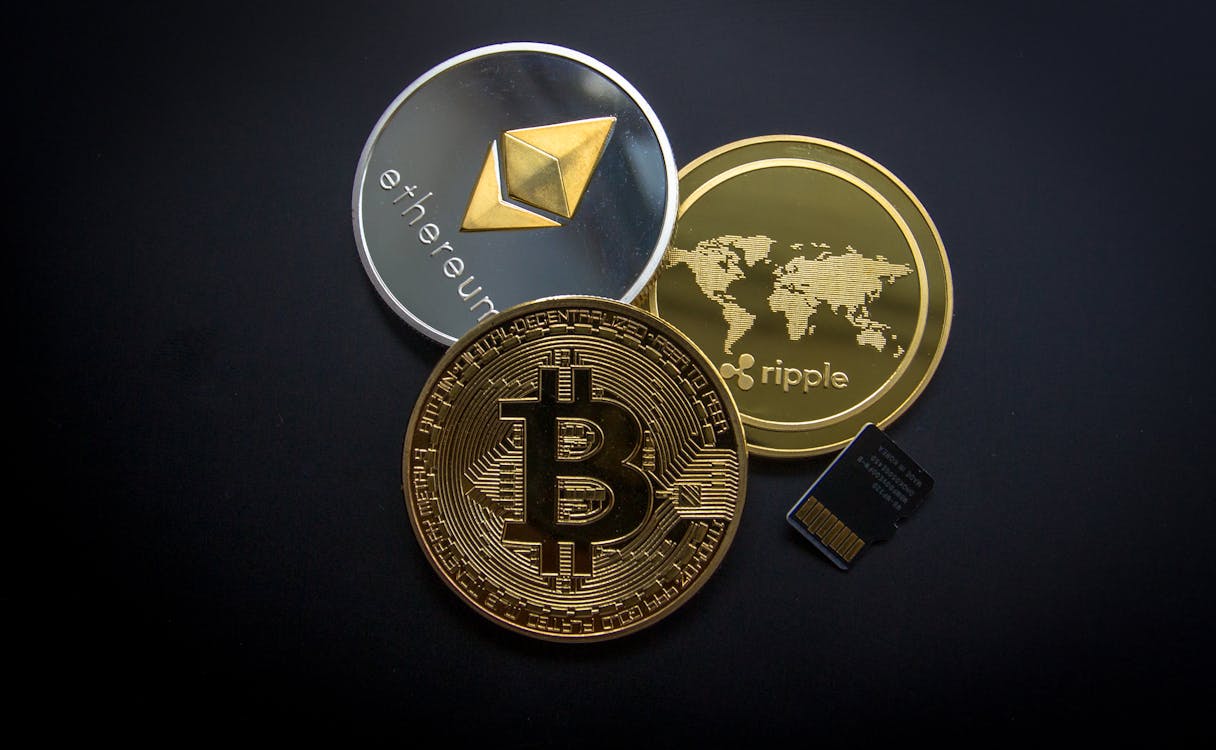Crypto – The money of tomorrow or just hype?
Published 6:57 pm Thursday, April 25, 2024

Image Source: pexels
You’ve definitely caught wind of the nonstop crypto buzz over the last decade or so. Overnight millionaires from Bitcoin. Crazy price swings shaking up the markets. Predictions about blockchain tech shifting society as we know it. On the other hand, you’ve likely also heard all the criticisms about crypto being a bubble, too volatile, a scam, or only useful for shady stuff on the dark web.
So what’s the real deal here? Is this revolutionary new form of digital money genuinely poised to transform the global economy and the achievements of future generations? Or will crypto join the ranks of interesting but unsustainable trends that eventually flamed out?
In this blog, we’ll explore the core arguments from both sides of the fiery cryptocurrency debate currently raging. After weighing the evidence, you can decide for yourself whether becoming a Bitcoin buyer is a wise move or not!
Why Cryptocurrency is the Future of Money
Let’s kick things off by examining all the compelling reasons why cryptocurrency IS in fact the inevitable digital money of tomorrow:
Decentralization & User Control
By design, cryptocurrencies like Bitcoin provide a fully decentralized model of digital money outside any government, bank, or third-party control. Just peer-to-peer transactions on an open blockchain with no middlemen. This makes crypto extraordinarily resistant to manipulation while putting users in charge of their own funds.
Programmatic Monetary Policy
Traditional fiat currencies like the U.S. Dollar or Zim Dollar are endless sources of economic turmoil since their inflation rates, supply, and valuation depend entirely on the (often reckless) monetary policies set by central banks and legislators.
Cheaper, Faster Money Transfers
Through advancements like the Bitcoin Lightning Network, cryptocurrency enables shockingly cheap and instantaneous payments and value transfers globally with little to no fees. This potentially obsoletes slow and expensive current systems like wire transfers, PayPal, remittances, and more.
New Financial System Architecture
Beyond a simple new form of money, the blockchain and distributed ledger technology underpinning cryptocurrency introduces an entirely new programmable financial architecture. Innovations like smart contracts, DeFi, NFTs, DAOs, and more are transforming virtually every aspect of banking, investing, identity, asset provenance tracking, crowdfunding, and more into unstoppable, decentralized, permission-less services.
Global Accessibility for the Unbanked
Today over a billion people around the globe lack access to a bank account or digitally connected financial services due to lacking infrastructure, institutional discrimination, and more. But through just a mobile device, anyone can effectively join the crypto economy and participate in its opportunities by owning secure digital wallets and crypto assets. Huge for democratizing access.
Web3 & The Metaverse Economy
As we enter new frontiers of the internet through Web3 and the metaverse, trustless global payment systems and wealth app build-in of decentralized apps and virtual worlds across an open crypto ecosystem become not just an advantage, but a necessity to foster international participation and interoperability.
The Counterarguments
Of course, there’s no shortage of vocal critics and naysayers lobbing counterarguments to downplay cryptocurrency’s overall significance and sustainability. Let’s address some of the major critiques:
“Cryptocurrencies are too volatile and risky.”
Fair point – the prices of crypto assets have experienced extreme volatility thus far with stomach-churning price swings capable of wiping out investments in short order. However, this volatility historically lessens over time as usage, liquidity, and overall market cap of a given cryptocurrency increases.
“It’s just used by criminals for illicit transactions.”
While crypto admittedly does get used on dark web markets for things like purchasing drugs or hiring hackers, data from blockchain forensics firms like Chainalysis estimate that illicit activity only accounts for roughly 0.15% of total crypto transaction volumes. So it’s an astronomically tiny portion akin to how cash gets used for some illicit things too.
“It’s not backed by anything.”
Unlike fiat currencies which were once partially backed by gold reserves, cryptocurrency is admittedly a non-tangible asset not directly backed by any physical collateral or commodity. However, the argument can be made that crypto is effectively “backed” by the computational work and electricity spent mining and securing the network via proof-of-stake/proof-of-work.
The Potential of Tomorrow’s Money
When you zoom out and filter away some of the extremist narratives dominating today’s crypto discourse, you can objectively view cryptocurrency as the natural evolution of money into a truly natively digital form suited for the internet age.
At the same time, cryptocurrency still represents extremely new, volatile, and experimental territory that requires much broader adoption, maturation, regulation, and education before it can shed the risks and inefficiencies that come with being a pioneering technology.
Cryptocurrency and blockchain tech aren’t just overhyped trends – they’re laying the innovative primitives and foundation to bring currency and banking into the digital age the same way the internet disrupted communication, media, entertainment, and publishing.
In Conclusion
While crypto assets like Bitcoin or Ethereum may undergo periods of speculative mania and volatility that spook every new Bitcoin buyer, it would be foolish to dismiss the long-term potential and inevitability of a financial reboot brought forth by cryptocurrency.
The future of money is already being built, one digital asset and decentralized app at a time. Jump on board the crypto movement now or stay behind, but don’t be caught off guard when historians look back at this period as the birth of humanity upgrading its financial operating system.

